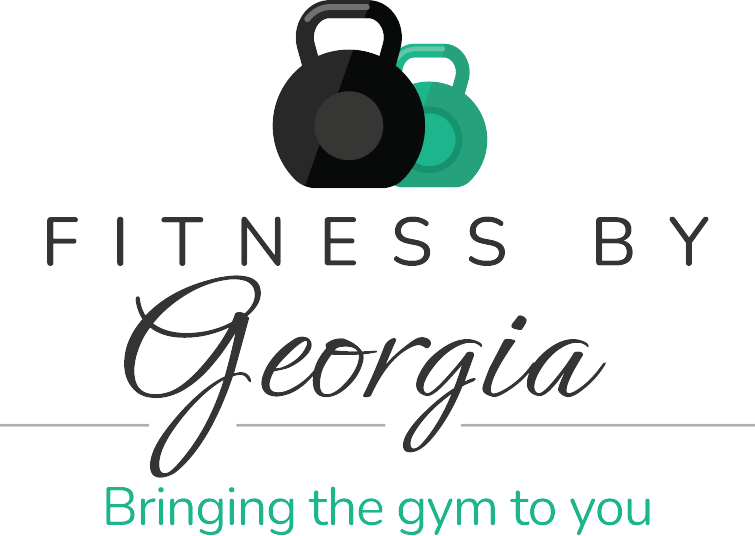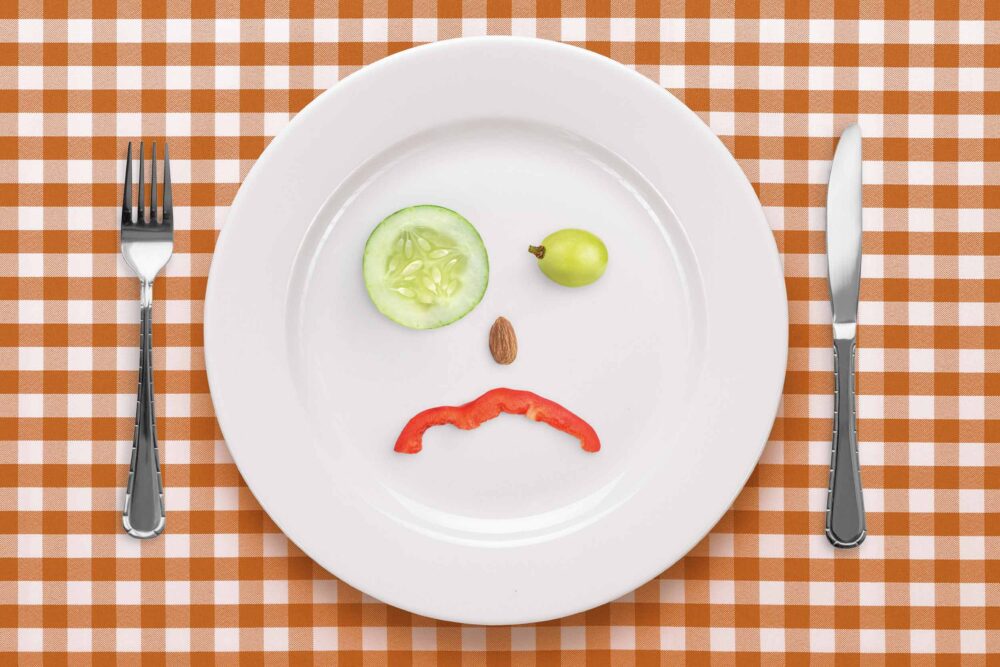Working on your nutrition is a powerful step toward achieving your health and fitness goals – besides, diet has to be 80% of your focus if you’re looking to lose weight. However, it’s essential to recognise when ‘dieting’ may be doing more harm to your body, mind and soul than good. Prolonged calorie restriction and food group elimination can lead to various physical and mental health issues.
Long-term dieting and calorie deficits negatively impact your metabolism. Research shows that extended calorie restriction leads to a decrease in metabolic rate, making it more challenging to maintain or continue weight loss. Chronic dieting also elevates cortisol levels (the body’s primary stress hormone) which, when sustained, causes some of the many symptoms I discuss below.
This is why we need to remember with regards to fad diets: ‘if it’s too good to be true, it probably is’. If you’re being promised severe weight loss through extreme methods, you’ll pay for it. But, you may not be in this category, you’ve just been undereating for a long time… or, you may not even realise you’re undereating until you read this and recognise multiple symptoms.
Let’s explore the signs that indicate it might be time to pause or stop your dieting:
If you’ve been diligently following your diet but the scale hasn’t budged, it suggests that your metabolism has adapted to the calorie deficit. Instead of further restricting calories (which may take you to much too low a daily amount) or increasing exercise intensity, consider taking a break from dieting to help reset your metabolism. There are other reasons the scale may not have moved: if you’ve been weight training for more than a few months, and have followed a very high protein diet despite being in a deficit, there’s a chance you’ve gained a bit of muscle which has balanced out the scale. It’s a universal truth too that no one accurately measures calories, not even experienced dietitians, so misjudging what you’re actually eating is a real possibility.
However, if you are eating very low calories and the scale hasn’t budged… reverse dieting may be needed. I’ll explain more on this later in this article, as this is something I’ve had to do with multiple clients.
Are you always wanting to nap? Feeling constantly tired, even after lots of rest, may indicate that your body isn’t receiving sufficient energy from your diet. If you’re exercising you’ll be achy, and severe calorie restriction leaves you feeling sluggish and unmotivated.
Restrictive diets can lead to hormone imbalances/disruptions (particularly prominent in women), which can cause: irregular or missed menstrual cycles; low libido; mood swings, depression and anxiety; difficulty sleeping and/or poor sleep quality; digestive issues and storing fat around the abdomen.
Physical symptoms such as: hair thinning, brittle nails, dry skin and acne/spot outbreaks. These signs suggest that your body is struggling to meet its nutritional needs.
Maybe you find you’re more irritable and obsessed with food? You may be experiencing intense cravings, or feeling irritable and anxious. This is a clear indicator that your diet is negatively affecting your mental health.
On the other hand, it’s common for chronic dieters to have a reduced appetite or lack of interest in eating and drinking, which can be a sign of malnutrition resulting from prolonged dieting.
Chronic overly-low calorie restriction weakens your immune system, leading to more frequent illnesses and longer recovery times.
Your brain needs fuel – namely carbohydrates – to function, which are often, sadly, a demonised food group amongst faddy dieters. Malnutrition results in poor concentration and difficulty focusing.
Lastly, constantly feeling cold happens because your body lowers its core temperature as a way to conserve energy when it’s not receiving enough calories.
You may well be thinking to yourself… ‘I’ve still got some weight I’d like to lose, but I can’t really cut my calories any more as then I’ll be eating like a child, and I’m already barely eating anything!’
This is where reverse dieting comes in and saves the day. I have had to do this with a few of my clients (including those who are overweight) who have chronically under-eaten (some through dieting/societal pressure, some not intentionally).
Reverse dieting is the process of transitioning from a prolonged calorie deficit back to a maintenance level, in order to reset your ‘starting point’. Reverse dieting is a structured approach to gradually increasing your calorie intake, which restores your metabolism and maintains weight loss. Essentially, you lose weight by eating more in the long run. By slowly adding 50 to 100 calories per week, your body can adapt to the higher energy intake, improving energy levels, mood, and overall performance. Reverse dieting should always be combined with strength training, as building muscle mass is the only way to ‘boost’ your metabolism as muscle is an expensive tissue that needs more calories when at rest.
[If you want to find out more about reverse dieting, please get in touch. I’m going to write an article explaining the phenomenon soon, watch this space!]
Diet breaks, pausing or stopping your diet isn’t a setback; it’s a proactive step to preserving your health. It’s especially worth considering if you do not feel you are learning from your ‘dieting’. If you’ve done a diet and don’t feel you have come away from it able to make better-informed, sensible, sustainable changes in the long run, then you haven’t approached your nutrition properly. You should not be spending half your life on and off a ‘diet’; diet is merely the word for what you eat day to day.
Remember, balance equals health. And faddy diets that suggest cutting foods or food groups are not balanced, sustainable nor enjoyable. You can lose weight without going through a gruelling cut which leads to some of the symptoms laid out above.
Do you feel like you need support with your diet and your metabolism? Get in touch to find out how I can support you to continue hitting your goals, without being miserable!

